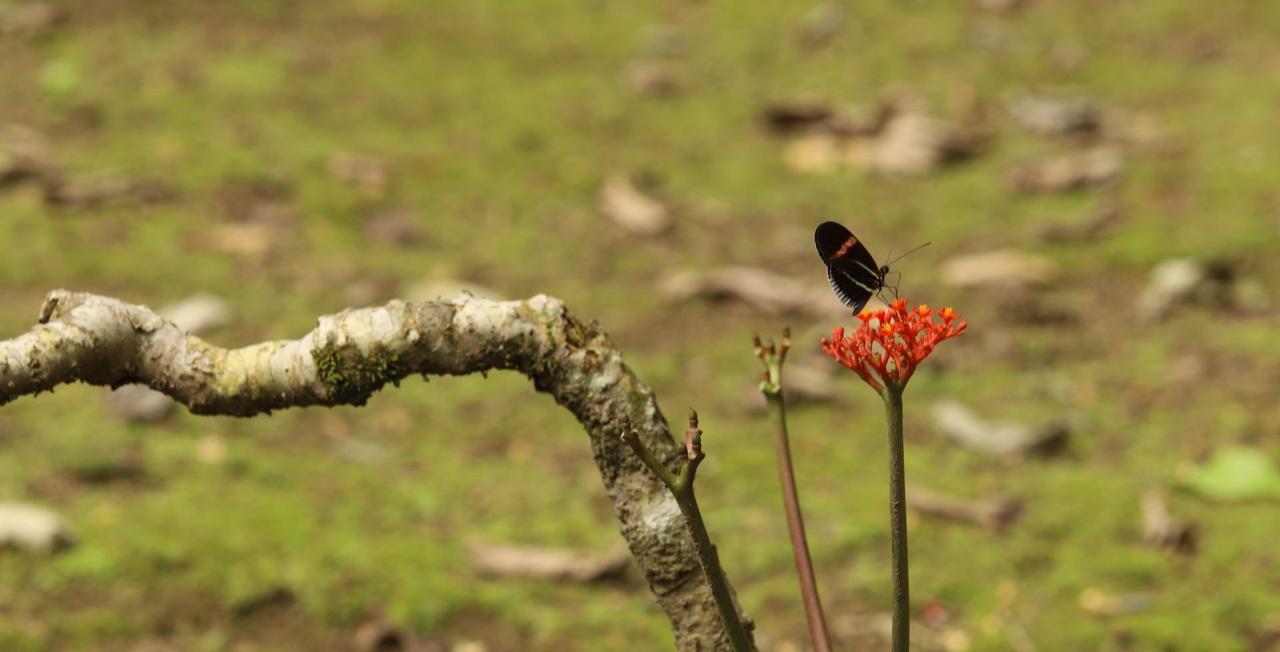Reybanpac’s good environmental practices
2024-11-01This November 1st is World Ecology Day, which main purpose is to raise awareness of the need to protect the environment and encourage the practice of ecological actions that contribute to the preservation of the planet's biodiversity.
Reybanpac is committed to responsible and sustainable agribusiness. To this end, it has implemented a series of good ecological practices that include the efficient management of natural resources, the preservation of biodiversity, the responsible management of waste and the adoption of precision farming techniques. Let us review a few of them:
EFFICIENT WATER CONSUMPTION IN PRODUCTION.
Water is one of the most valuable natural resources. For this reason, Reybanpac has strived to optimize the use of this resource. Currently, 97.88% of Reybanpac's plantations use under-tree and under-tree with micro-spray irrigation systems, which have proven to be more efficient in water consumption per cycle per hectare by 65.26% and 71.30%, respectively, compared to the over-tree irrigation system. It is expected that by 2027, 100 % of the plantations will have an under-tree irrigation system.
Due to this efficient irrigation system, the water consumption indicator in 2023 was 0.02 m3/kg of bananas. According to the “Water Footprint of the Banana Industry” report of the Food and Agriculture Organization of the United Nations (FAO), the average water consumption for irrigation in the sector is 0.5 m3/kg of bananas.
Reybanpac is also progressing in the implementation of water recirculation plants at its packing houses. As of 2023, 20 of 76 packing stations have these systems. The average water reduction at these sites is 71%, equivalent to water savings of 1134 m3 per processing week. The company's goal for 2028 is to reach 45 % of packing stations with water circulation plants.
SOIL MANAGEMENT PLAN
Proper soil care is fundamental to achieving sustainable agrifood systems; it is also an important factor that contributes to carbon sequestration. The company has a soil management plan that includes cultural and biological practices.
As part of this plan, a biofactory was established in 2023, in alliance with a strategic partner, to reproduce, store and distribute microorganisms for application in the company's plantations.
The use of microorganisms has led to a series of benefits such as improved soil fertility, prevention of plant and root diseases, and reduced use of nematicides.
Other practices to care for soil health include cover planting and precision agriculture to optimize the use of fertilizers and other inputs.
BIODIVERSITY CONSERVATION
Reybanpac has 1182 hectares set aside for conservation areas, representing 15.3% of its total land area. This commitment exceeds the 10% threshold recommended by international standards, reflecting the effort to go beyond minimum requirements. These conservation areas are fundamental to maintain biological corridors that serve to protect biodiversity and ensure the survival of local species.
To the same end, Reybanpac, through the Wong Foundation, has been contributing since 1998 to the conservation of the Centro Científico Río Palenque tropical forest, the only remnant of primary forest in the upper Guayas River basin. This protected area of 110 hectares is the habitat of more than 1,200 plant species. Over the years, 356 species of birds, 350 species of butterflies, 44 species of bees, and a great variety of snakes, amphibians, bats, rodents, among others species, have been identified.
For the protection of the forest, permanent and random patrols are carried out to prevent illegal logging and hunting. In addition, native species are replanted to support the regeneration of the forest when losses occur due to natural causes.
RESPONSIBLE WASTE MANAGEMENT
Since 2021, Reybanpac has undertaken a circular economy program focused on recycling the plastic waste generated in its operations, such as cluster protection covers, strapping and ties. The material is delivered to allied managers for recycling, who in return provide products made from recycled plastic that are incorporated into the production process. As part of this project, playgrounds are also made from recycled plastic wood that are donated to schools and child development centers of the Wong Foundation for the benefit of hundreds of children.
On the other hand, special waste is removed and properly managed by the suppliers of these inputs.
In this way, Reybanpac has managed to recover, recycle and reuse its waste, actively contributing to the circular economy and reducing the environmental footprint of its products.
These actions are a testimony of Reybanpac's contribution to ensure sustainable production and conserve the life of terrestrial ecosystems, complying with the United Nations (UN) Agenda 2030. We will continue to maintain a harmonious relationship with our environment through responsible practices.
